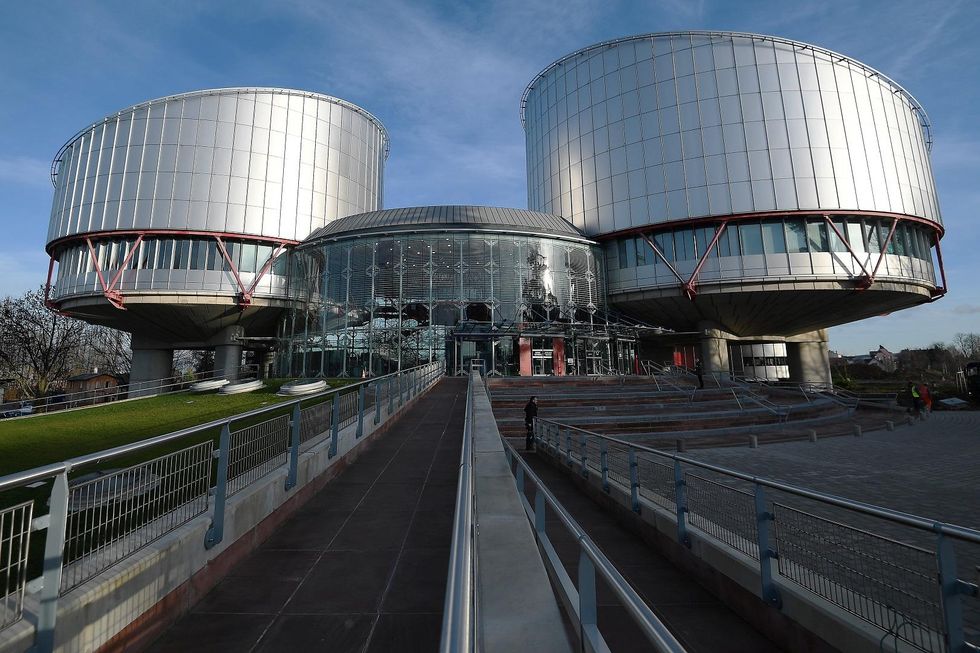
The European Court of Human Rights ruled on Thursday that defamation against the Muslim prophet was not protected by freedom of expression. (FREDERICK FLORIN/AFP/Getty Images)

A European court refused to overturn an Austrian court's ruling that defamation against the Muslim prophet Muhammad was not protected by freedom of expression, the New York Times reported.
In 2009, a woman in her late 40s identified only by the initials “E.S” held two seminars on Islam. According to a transcript obtained by the Daily Mail, during one of these seminars she said, “A 56-year-old and a six-year-old? ... What do we call it, if it is not paedophilia?”
While historians debate over the exact age of Muhammad's second wife, Aisha, most agree that she was around 6 or 7 at the time of the marriage, and no older than 10 years old when the marriage was consummated. Muhammad himself would have been in his 50s at the time. Even some Islamic scholars admit this, although they point out that child marriages were not uncommon at the time.
The woman who spoke at the seminar said that she had not defamed Muhammad with her comments, arguing that her “criticism of Islam occurred in the framework of an objective and lively discussion which contributed to a public debate.”
In February 2011, a court in Vienna, Austria, ruled against this woman, and fined her 480 Euros (roughly $547 dollars at the time of publication), in addition to legal fees.
The European Court of Human Rights, or ECHR, which is based in Strasbourg, France, was deciding whether or not this ruling by the Austrian court violated Article 10 of the European Convention on Human Rights, a treaty agreed to by member states that lays out different rights and freedoms.
While the first part of Article 10 is reminiscent of the First Amendment to the U.S. Constitution:
Everyone has the right to freedom of expression. This right shall include freedom to hold opinions and to receive and impart information and ideas without interference by public authority and regardless of frontiers. This Article shall not prevent States from requiring the licensing of broadcasting, television or cinema enterprises.
The second part provides stipulations that the U.S. Constitution does not impose on its citizens:
The exercise of these freedoms, since it carries with it duties and responsibilities, may be subject to such formalities, conditions, restrictions or penalties as are prescribed by law and are necessary in a democratic society, in the interests of national security, territorial integrity or public safety, for the prevention of disorder or crime, for the protection of health or morals, for the protection of the reputation or rights of others, for preventing the disclosure of information received in confidence, or for maintaining the authority and impartiality of the judiciary.
The ECHR said in its decision that it believed the Austrian court had “carefully balanced her right to freedom of expression with the right of others to have their religious feelings protected.” It also said that it believed the earlier ruling “served the legitimate aim of preserving religious peace.”
In a statement reported by the Daily Mail, the court said:
[The ECHR] held that by considering the impugned statements as going beyond the permissible limits of an objective debate, and by classifying them as an abusive attack on the Prophet of Islam which could stir up prejudice and threaten religious peace, the domestic courts put forward relevant and sufficient reasons.